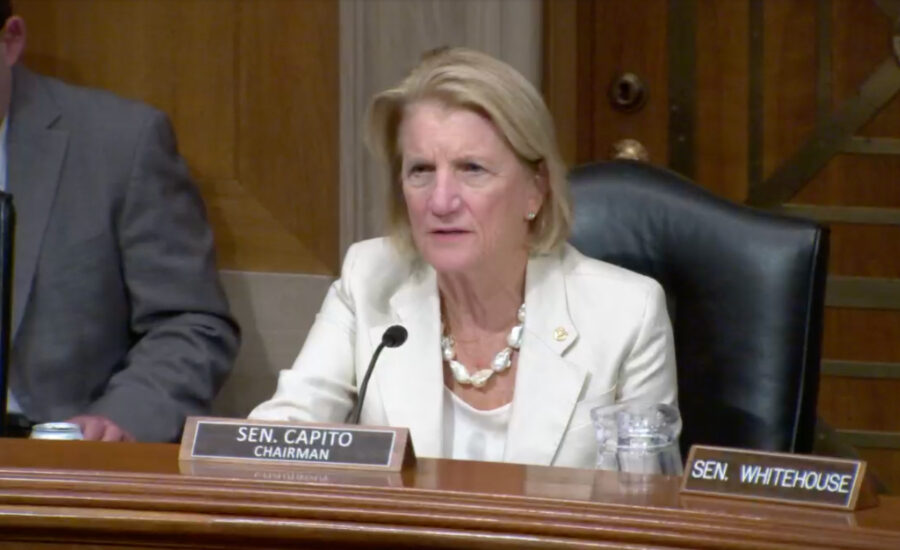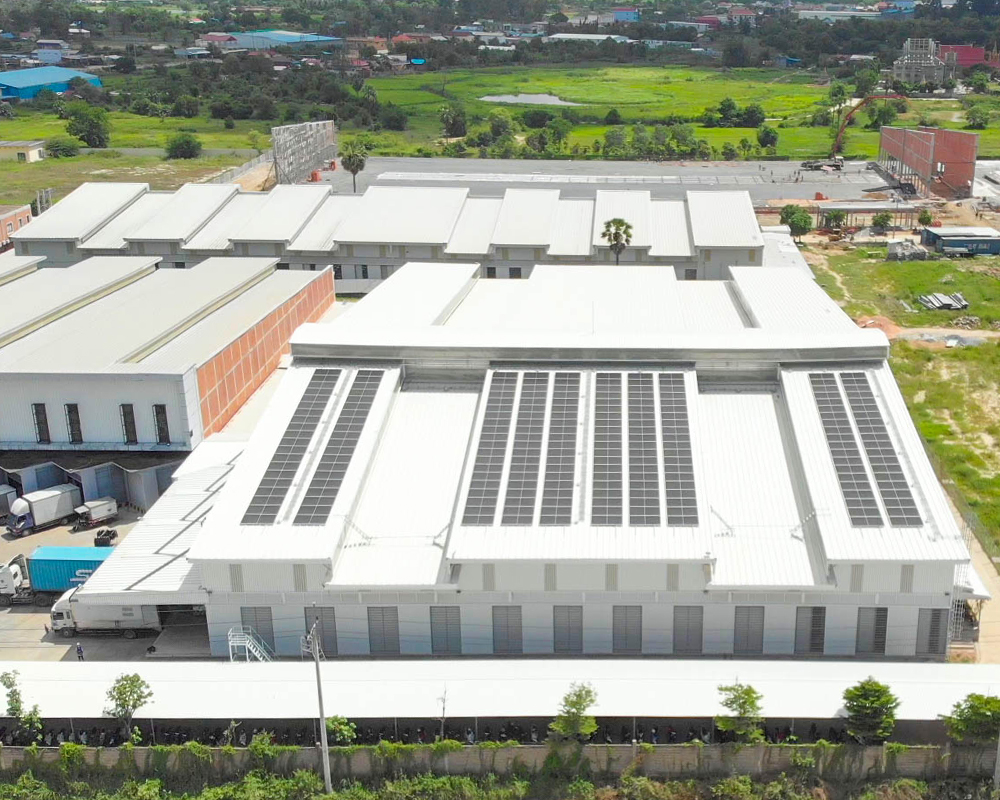
Senate Committee Advances Budget Plan With Fast-Tracked NEPA Option
[ad_1]

Project owners willing to pay a fee would be able to fast-track their federal environmental reviews under a provision included in the Senate Environment and Public Works Committee’s budget reconciliation proposal.
The legislative text, which committee Chair Shelley Moore Capito (R-W.Va.) released June 4, includes a provision amending the National Environmental Policy Act (NEPA) by adding a section creating “project sponsor opt-in fees for environmental reviews.” In exchange for fee payment equal to 125% of the cost to prepare an environmental assessment or environmental impact statement, federal regulators would have new deadlines to complete their reviews. An environmental assessment would be due 180 days after the fee is paid, and an environmental impact statement would be due one year after publication of the notice of intent to prepare that review.
An assessment and EIS prepared for a fee-paid sponsor would not be subject to judicial review, with exceptions for sponsors seeking a review or if a court finds an agency failed to meet a deadline.
“This legislative text puts in motion plans that Senate Republicans pledged to take, like stopping Democrats’ natural gas tax and rescinding unobligated dollars from the so-called Inflation Reduction Act,” Capito said in a statement.
With a majority in both the House and Senate, Republicans have been able to craft the legislative package without Democrats. Ranking committee member Sen. Sheldon Whitehouse (D-R.I.) criticized the bill in a statement, calling the provision for fast-tracking NEPA reviews “a pay-to-play scheme [that] rewards the planet’s biggest polluters.”
The House reconciliation package included a similar provision to expedite permitting under NEPA, and also includes another under the Natural Gas Act with a different fee structure and one-year deadlines in most cases. The legislation comes as the U.S. Supreme Court issued a ruling May 29 that limits the scope of NEPA reviews to environmental impacts directly from a project, and not related upstream and downstream impacts tied to the resulting infrastructure.
Rescind, Repeal and Fund
At the same time, the package calls for repeal of 25 sections of the Inflation Reduction Act, and rescinding unobligated funds from those sections. Three of them deal with improving environmental review efficiency.
Other sections lined up for repeal include various provisions to address air pollution and several that set funding for projects to modernize U.S. General Services Administration facilities and to buy low-carbon construction materials for federal buildings and transportation projects.
The House reconciliation package similarly includes various items to repeal and rescind from the Inflation Reduction Act, as well as rescinding funding for a methane emissions and waste reduction incentive program. A related charge on owners of facilities that emit more than 25,000 metric tons of carbon dioxide each year would be paused until 2034.
The committee markup is a “critical step toward abolishing the duplicative and punitive ‘methane fee’ and improving the permitting system,” said Mike Sommers, president and CEO of the American Petroleum Institute, In a written statement.
The bill also appropriates $256.7 million for backlogged repair, restoration and maintenance backlog and new security structures for the John F. Kennedy Center for the Performing Arts in Washington, D.C, which President Donald Trump has criticized for its condition and said he would push lawmakers to fund repairs and maintenance.
Republicans in Congress are working to pass the reconciliation bill named the One Big Beautiful Bill Act by July 4. House lawmakers already passed their version of the legislation by a one-vote margin on May 22. The nonpartisan Congressional Budget Office estimates the House version would increase deficits by $2.4 trillion over 10 years.
Using the reconciliation process will make it easier for Republicans to pass the bill in the Senate with just a simple majority, rather than a three-fifths majority. But Republicans have not fully agreed on several issues. Some have sought greater spending cuts, others want to reduce proposed changes to Medicaid that are expected to impact health care costs. But still others have called for even more cuts to Medicaid and other benefits programs, while some Republicans want to restore clean energy project tax credits that would be phased out in the House version of the bill.
[ad_2]
Source link
Post a Comment
You must be logged in to post a comment.






